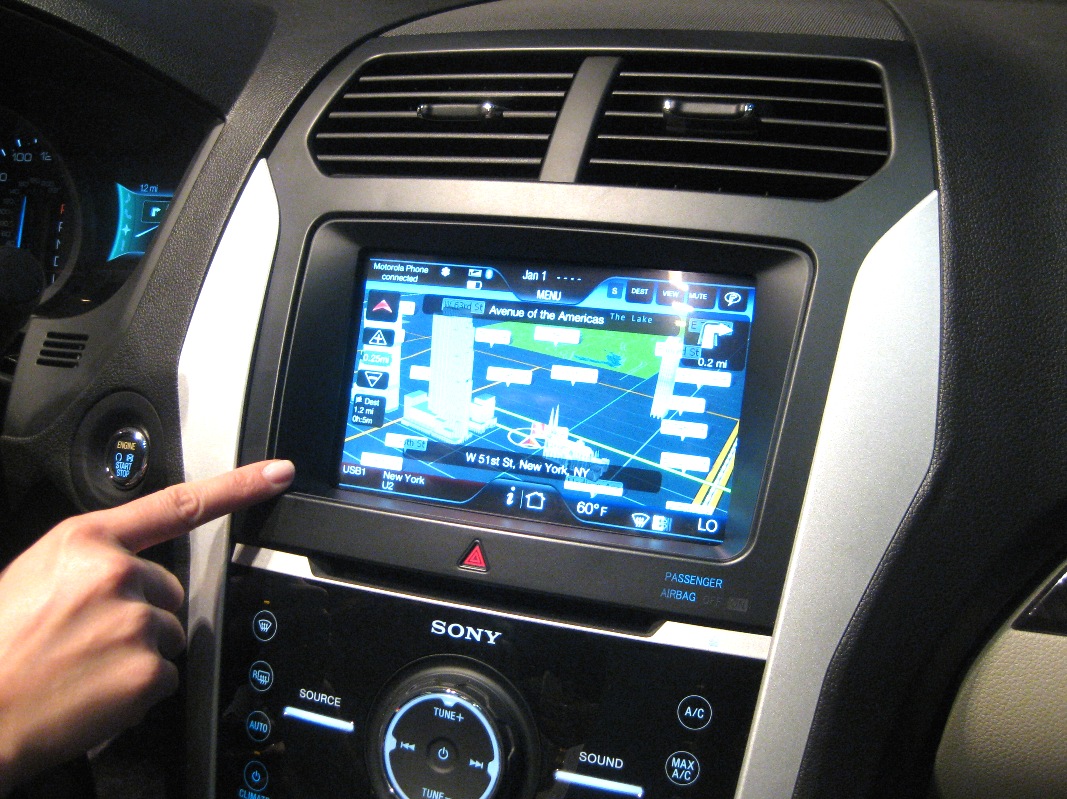 Top Class Action Lawsuits
Top Class Action Lawsuits
MyGosh, MyFord Touch ain’t Working! Well, that’s what the plaintiffs in a proposed class action lawsuit filed this week are alleging. Specifically, that Ford Motor Company’s MyFord Touch, MyLincoln Touch and MyMercury Touch touchscreen systems are defective, often freezing, failing to respond to voice and touch commands and failing to connect to mobile phones.
The MyFord class action, filed in the U.S. District Court for Central California, includes a long list of problems with the system, and details Ford’s failed attempts at correcting the system through system updates and other fixes.
The systems, introduced by Ford in 2011, promised owners of Ford, Lincoln and Mercury vehicles with the ability to seamlessly operate audio controls, use a GPS navigation system, control climate systems and operate a Bluetooth-enabled device through the system.
“In theory, MyFord Touch is a brilliant idea and worth the premium that Ford charged its customers for the system,” said Steve Berman, managing partner of Hagens Berman and one of the attorneys who filed the lawsuit. “In reality, the system is fundamentally flawed, failing to reliably provide functionality, amounting to an inconvenience at best, and a serious safety issue at worst.”
Lac-Mégantic Crash Leads to Lawsuit. Sadly, among the biggest news stories this week, on both sides of the US-Canadian border, is the devastation caused by a runaway Montreal, Maine & Atlantic train that slammed into the small Quebec township of Lac Magentic, killing some 50 people and obliterating the town center in an inferno fueled by the train’s cargo of crude oil.
Not surprisingly, on Monday, two residents of Lac-Mégantic filed a train crash class action lawsuit against the Montreal, Maine & Atlantic railway, company chairman Edward Burkhardt and president Robert Grindrod.
On Thursday, July 18, the class action proceeding (motion for authorization) was amended to include further defendants, World Fuel Services Corp., Dakota Plains Holdings, Irving Oil Limited, and their subsidiaries. World Fuel Services is a publicly traded US corporation and Irving Oil is one of Canada’s largest oil companies.
The claims made against the newly added defendants include the allegation that they failed to ensure that the highly flammable contents of the DOT-111 tankers that derailed in Lac-Mégantic’s downtown area in the early morning hours of July 6, 2013 were properly contained and safely transported. The Motion to authorize was amended to reflect the fact that the liability for the accident is spread across a broader network of involved corporations. As the facts develop additional entities may be implicated.
The Lac-Mégantic class action is being pursued to ensure that the victims of the July 6, 2013 derailment and all those affected obtain compensation for their substantial losses. The proposed representative plaintiffs are Guy Ouellet, whose partner, Diane Bizier, died in the explosion and Yannick Gagné, the owner of the popular restaurant, Musi-Café, which was destroyed as a result of the derailment and ensuing explosions.
A team of class action lawyers has been assembled to assist the Lac-Mégantic community to litigate the action, and consists of Lac-Mégantic lawyer Daniel E. Larochelle, Consumer Law Group Inc. in Montreal, Rochon Genova LLP of Toronto and Lieff Cabraser Heimann and Bernstein LLP of New York and San Francisco.
Top Settlements
Nissan Turning over a New Leaf? A proposed $10 million settlement has been reached in a defective automotive class action lawsuit pending against automaker Nissan. The lawsuit alleged that the Nissan Leaf suffered from a thermal management defect, that its lithium-ion battery loses capacity over time at an excessive rate when operated in a high temperature environment and that the vehicle does not have the driving range represented by Nissan.
The terms of the Nissan settlement involve Nissan agreeing to expand battery warranties for approximately 18,588 current and former owners of the 2011-2012 Nissan Leaf throughout the US. Additionally, Nissan will extend the Leaf warranty to add battery capacity loss to its existing limited warranty for up to 60 months or 60,000 miles, requiring Nissan to repair the battery to at least 70 percent of its full capacity, and if repair is not possible, to replace the pack with a newly manufactured or reconditioned one.
All class members will be automatically included in the settlement unless they choose to opt out and Nissan will mail notice of the new warranty once the agreement is finalized.
The case is Klee at al. v. Nissan North America Inc. et al., case number in the U.S. District Court for the Central District of California.
Ok folks, have a safe and happy weekend—see you at the bar!
